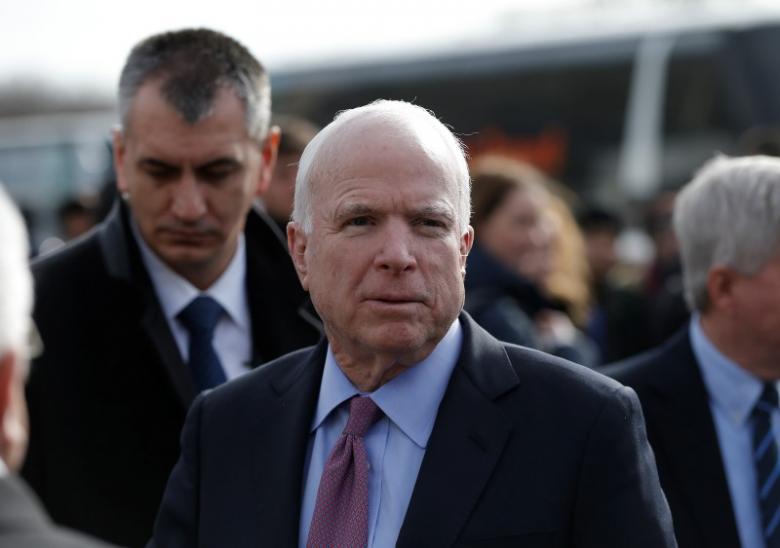Washington- Two U.S. Republican Senators said they were seeking to amend the controversial Justice Against Sponsors of Terrorism Act (JASTA) to limit the scope of possible lawsuits.
The law was strongly rejected worldwide, as several countries have described it as a violation to the principles of international relations and sovereign immunity.
Linsdey Graham and John McCain, two of the Republican Party’s congressional foreign policy leaders said on Wednesday that they wanted to amend the law in a way to sue a government only if it “knowingly” engages in financing or sponsoring terrorism or terror groups.
“All we’re saying to any ally of the United States [is], you can’t be sued in the United States for an act of terrorism unless you knowingly were involved, and the same applies to us in your country,” Graham said in a Senate speech.
The two Republican senators stressed that the law could have unintended consequences that would harm U.S. interests.
Graham told the Senate that the law “protects the United States in its efforts to defend itself in a very dangerous world,” saying: “We don’t want to be sued under those circumstances.”
“If we don’t make this change, here’s what I fear: That other countries will pass laws like this and they will say that the United States is liable for engaging in drone attacks or other activity in the War on Terror and haul us into court as a nation and haul the people that we give the responsibility to defend the nation into foreign courts”, Graham added.
In September, the U.S. Congress overwhelmingly overruled President Barack Obama’s veto of JASTA, also known as the 9/11 bill. Obama had warned the bill could lead to retaliatory lawsuits from other countries and would harm U.S. international relations.
“Every time a drone is launched, every time Americans go in harm’s way, every time a diplomat engages in activity abroad, we’re subjecting them and our nation to lawsuits, potential imprisonment,” Graham said. “And we need to fix this.”
For his part, McCain said that JASTA could threaten foreign investments in the U.S.
“If a nation that has significant investments in the United States of America — whether it be in the stock market or investments in many ways — and that country knows that it’s going to be sued and possibly have its assets frozen, any thinking government is going to withdraw those assets so that they cannot be frozen as the court proceedings went on”, McCain stated.
On a different note, the U.S. Senate voted unanimously Thursday to extend sanctions on Iran for 10 years.
The renewal of Iran Sanctions Act (ISA) will be sent to the White House to be signed by Obama.
In November, the House of Representatives voted 419 to one for a 10-year renewal of the legislation. ISA, which was first adopted in 1996, punishes investments in Iran’s energy industry and deters the country’s pursuit of nuclear weapons.
